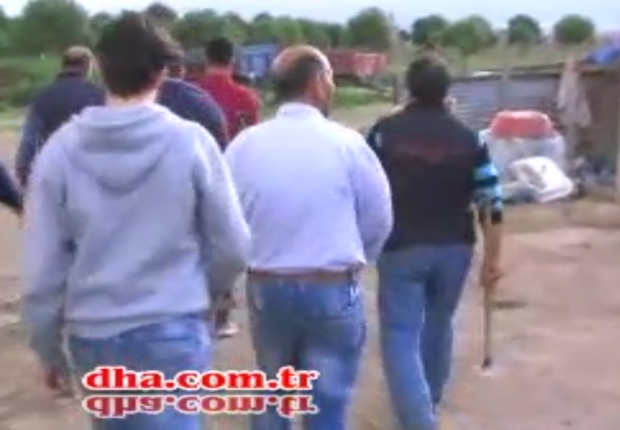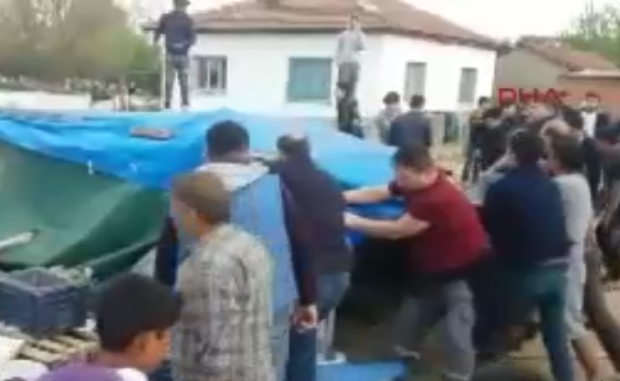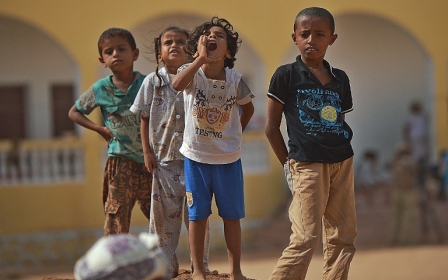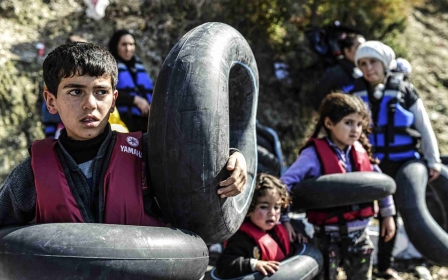Syrian refugees flee after Turkish knife gang attacks camp
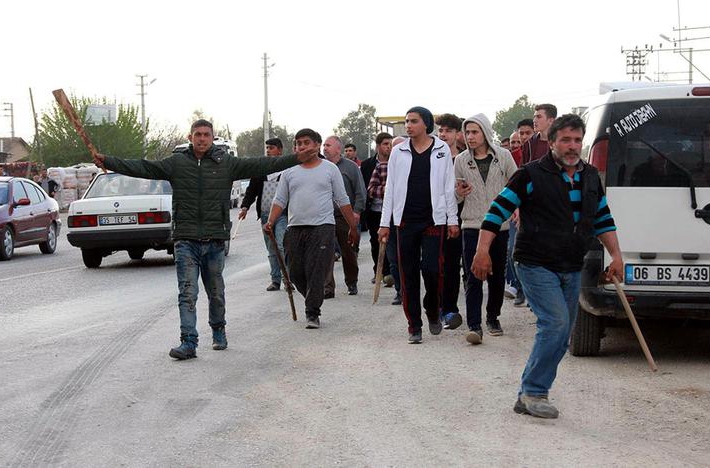
ISTANBUL, Turkey – A group of about 500 Syrian refugees fled their makeshift housing in Turkey's western province of Izmir on Saturday after an attack by enraged locals left 30 people injured, one critically.
The fight in Izmir's Torbali district broke out after news spread on Friday that a local child had been beaten by Syrians living there.
An argument between the beaten child's family and the Syrians soon morphed into a fight where a gang of residents from the Pamukyazi area, armed with knives and clubs, set upon the Syrians, local media reports stated.
About 30 were left injured and one person critically wounded after being stabbed. The injured were transferred to the Torbali State Hospital for treatment, while the victim of the stabbing, a 22-year-old local identified only as Mustafa, was taken to the provincial centre of Izmir for treatment.
On Saturday morning a local mob of around 300 people marched into the Syrian area and set fire to the tents and makeshift housing there. Forty tents were destroyed, according to media reports.
"It was impossible to stop the neighbourhood [residents]. They are full of rage. We don't want Syrians in our area. Problems have increased since they arrived," Ali Curukcu, the local headman was quoted as saying by the Turkish Dogan news agency.
"The state should take them and place them in camps," he said.
Images from the scene showed no police presence at the scene of the incidents. It was unclear whether police had been called and if they had arrived at the scene to break up the violence.
The Syrian refugees were seen walking on the highway towards the Tire region in Izmir.
Turkey hosts the highest number of Syrian refugees in the world, currently believed to be about five million.
During the early years of the war in neighbouring Syria, Turkey had an open-door policy and allowed Syrian refugees into the country without creating any obstacles.
Although Turkey says it still maintains its open-door policy, the number of Syrian refugees allowed in during the past two years has dwindled considerably, with many saying the borders are essentially closed to refugees.
The high number of Syrian refugees in Turkish towns and cities has led to multiple instances of a serious nature, including clashes in the past.
Many locals also revile them on the basis that they receive more state support than Turkish citizens.
The Turkish government only provides complete assistance to those staying in officially sanctioned camps but does not require all Syrian refugees to stay in them.
Syrians outside camps do not receive assistance other than basic health care. However, locals are incensed because officials often turn a blind eye and don't tax businesses established by Syrian refugees.
Turkish officials often state the government has spent vast sums of money – in excess of $20bn - on providing for the basic welfare of Syrians refugees residing in Turkey.
The West, and the EU specifically, have been criticised for not doing more. The EU has pledged $6bn in financial support for Turkey as part of the controversial migrant deal reached in March 2016.
Thus far, it has only handed over around $700mn of that sum, citing bureaucratic procedures and the need for concrete projects before releasing funds.
Ankara does not even grant Syrians refugee status and they only have temporary protection status as guests. Turkey does not accept refugees from non-European countries.
New MEE newsletter: Jerusalem Dispatch
Sign up to get the latest insights and analysis on Israel-Palestine, alongside Turkey Unpacked and other MEE newsletters
Middle East Eye delivers independent and unrivalled coverage and analysis of the Middle East, North Africa and beyond. To learn more about republishing this content and the associated fees, please fill out this form. More about MEE can be found here.


